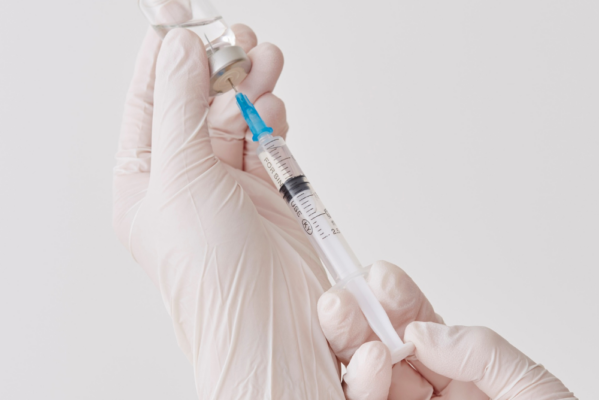As a pet owner, ensuring your puppy gets the right vaccinations at the right time is essential for their health and well-being. Vaccinations play an important role in protecting your puppy from serious diseases. In this guide, we will cover the recommended pet vaccination schedule, why each vaccine is important, and how you can keep your furry friend safe.
UNDERSTANDING THE IMPORTANCE OF PET VACCINATION
Annual vaccinations play a crucial role in preventing harmful diseases. By following a proper vaccination schedule, you can protect your puppy from common illnesses such as parvovirus, distemper, and adenovirus (hepatitis). Keeping up with scheduled vet visits ensure that your puppy gets the necessary vaccines at the right age, giving them a strong and healthy start to life.
RECOMMENDED PUPPY VACCINATION SCHEDULE
Key Vaccination Timelines
- 6-8 Weeks: First Round of Vaccinations
- 10-12 Weeks: Booster Vaccinations
- 14-16 Weeks: Final Puppy Vaccination Boosters
Recommended Vaccines
- Canine Parvovirus
- Canine Distemper Virus
- Canine Adenovirus
- Canine Parainfluenza
- Bodertella Bronchoseptica
- Canine Leptospirosis
KEEPING TRACK OF YOUR PUPPY’S VACCINATION SCHEDULES
It’s essential to keep a vaccination record to ensure your puppy receives timely shots. At Pet Medical Milsons Point, all our pet owners receive automated reminders to ensure that you never forget about your pet’s vaccinations! Missing vaccinations can put your pet at risk of contracting preventable diseases.

COMMON MYTHS ABOUT PET VACCINATION
Myth 1: Puppies Only Need One Vaccine
Puppies require multiple doses of vaccines to properly develop immunity against pathogens. A single shot is not enough.
Myth 2: Indoor Puppies Do Not Need Vaccines
Life is unpredictable and you never know when you might need to bring your puppy out! For this reason, we recommend that all puppies are vaccinated so that you never have to worry about they falling ill from preventable diseases!
Myth 3: Vaccines Cause More Harm Than Good
Vaccines undergo rigorous testing to ensure they are safe and effective. Side effects are rare and usually mild.
HOW TO PREPARE YOUR PUPPY FOR VACCINATION
Ensure Your Puppy is Healthy
Before getting vaccinated, your puppy should be in good health. If they are sick or showing signs of illness, such as vomiting, diarrhoea, or lethargy, let our team know and we may postpone vaccination your puppy’s vaccinations until they are better.
Make it a Positive Experience!
Vet visits can be stressful for puppies, so it’s important to keep them calm and comfortable. Bring their favourite toy, blanket, or a treat to help ease their anxiety. Positive reinforcement, such as praising them and offering rewards, can make the experience more enjoyable and help reduce fear during future visits.
Provide a Comfortable Environment
A calm environment before and after vaccination is essential for your puppy’s well-being. After getting vaccinated, they might feel a little tired or uneasy. Allow them to rest in a quiet and comfortable space, away from loud noises or other pets that could cause stress.
Watch Out for Vaccine Reactions
Mild reactions such as slight fever, drowsiness, or temporary loss of appetite are normal and usually resolve within 24 hours. Some puppies may experience slight swelling at the injection site. However, if your puppy has difficulty breathing, severe vomiting, or swelling around the face, contact us immediately, as these may be signs of an allergic reaction.
Follow Post-Vaccination Care
After the vaccination, provide fresh water and ensure your puppy gets enough rest. Avoid excessive physical activity for the next 24 hours, as their body is adjusting to the vaccine. Monitor their behaviour closely and follow any additional care instructions provided by our team.
Reasons Not to Miss Vaccinations
Missing vaccinations can put your puppy at serious risk of illness. Unvaccinated dogs are more vulnerable to infectious diseases, some of which can be fatal. Additionally, certain dog boarding facilities, groomers, and daycare centres require proof of vaccination before allowing dogs on their premises.
FAQS
If you miss a scheduled vaccine, consult us as soon as possible. We will work with you to modify your puppy’s vaccination schedule to ensure your puppy remains protected.
Most puppies experience mild side effects like drowsiness, slight swelling at the injection site, or a low fever. Severe reactions are rare.
It’s best to avoid taking your puppy to public places until they have received all core vaccinations. This minimises exposure to contagious diseases.
CONCLUSION
A well-structured vaccination schedule is essential for keeping your puppy safe and healthy. By following the recommended guidelines and partnering with our vets, you can ensure your furry friend gets the best start in life.
If you’re looking for professional and reliable vet care, visit Pet Medical Milsons Point to book an appointment today!
